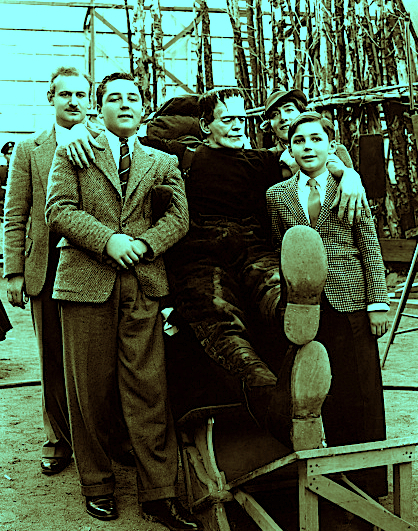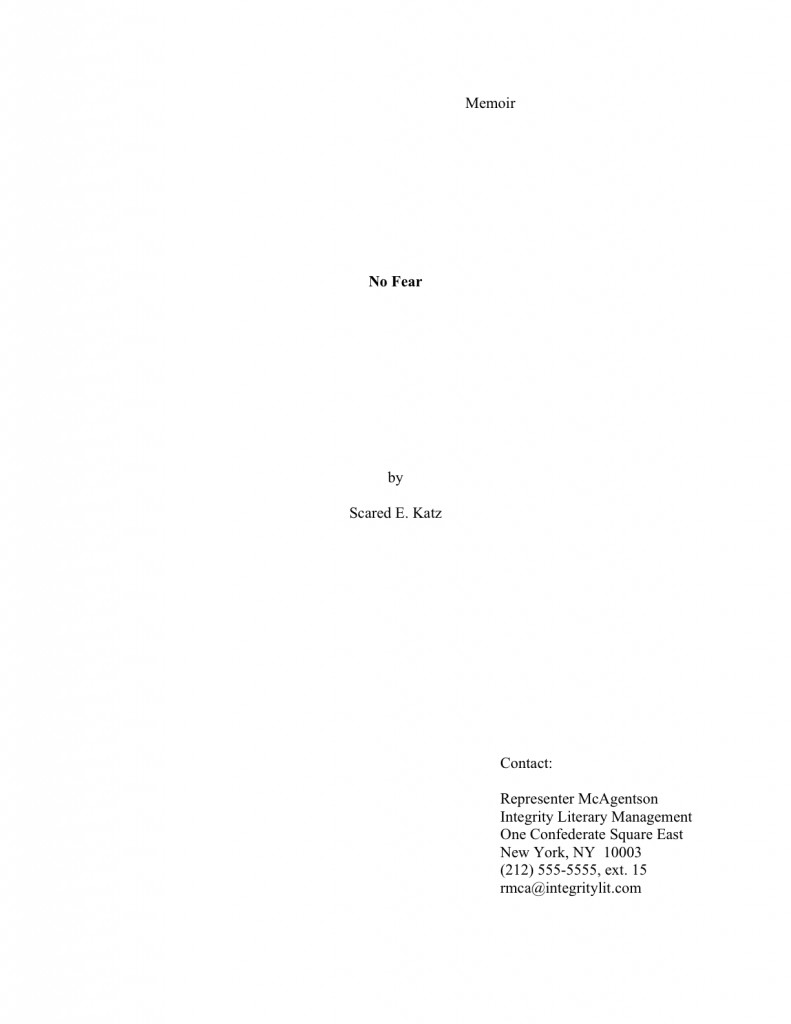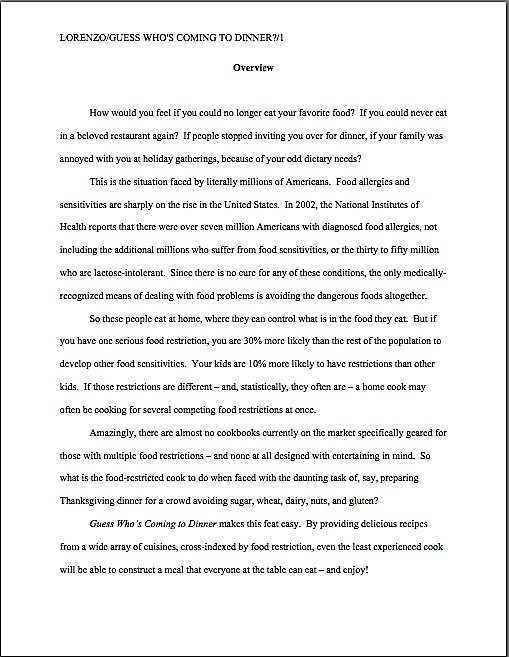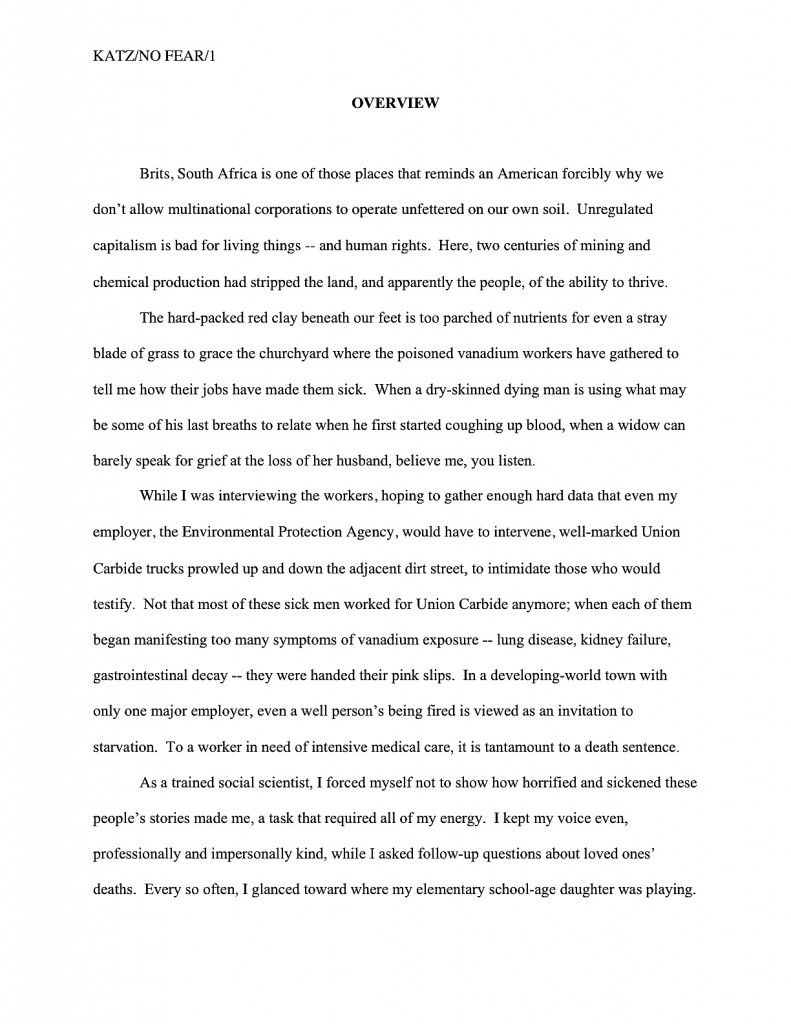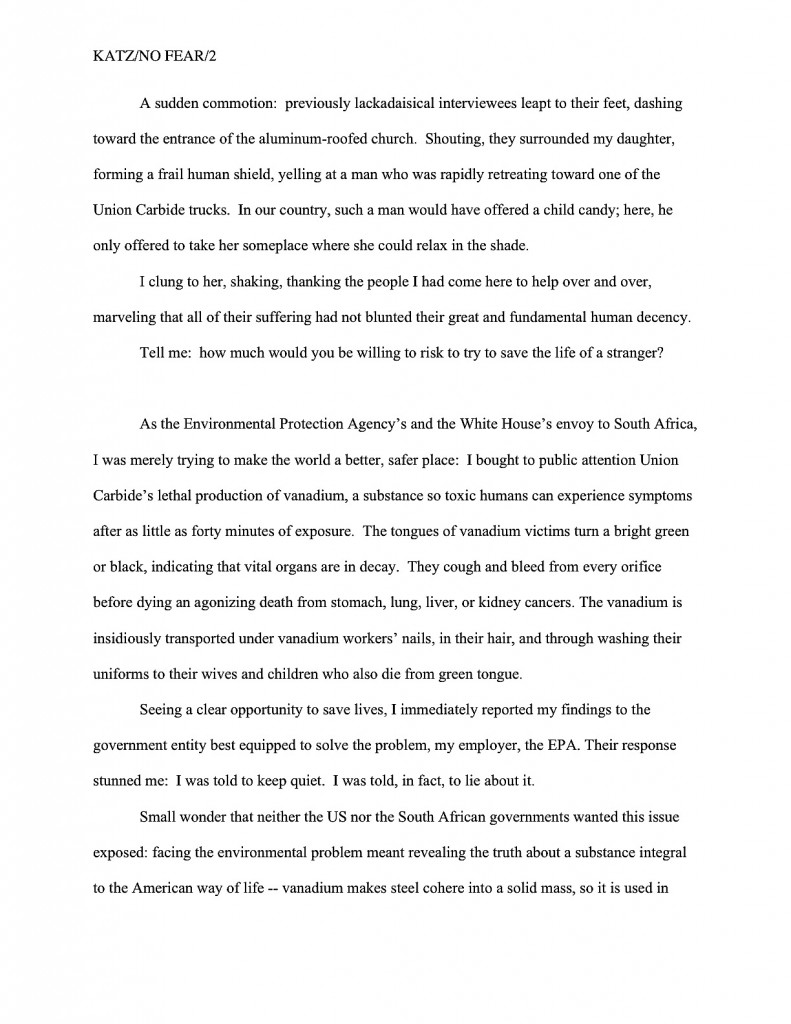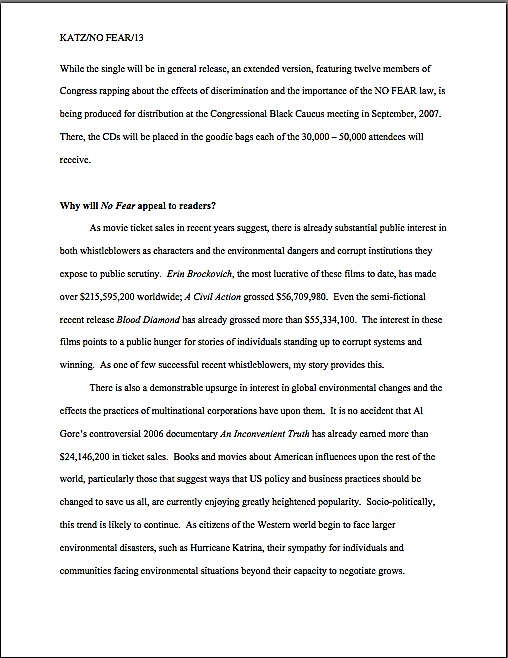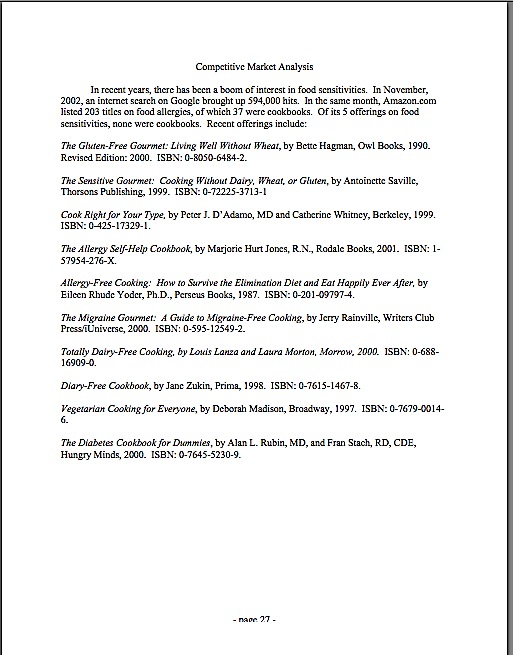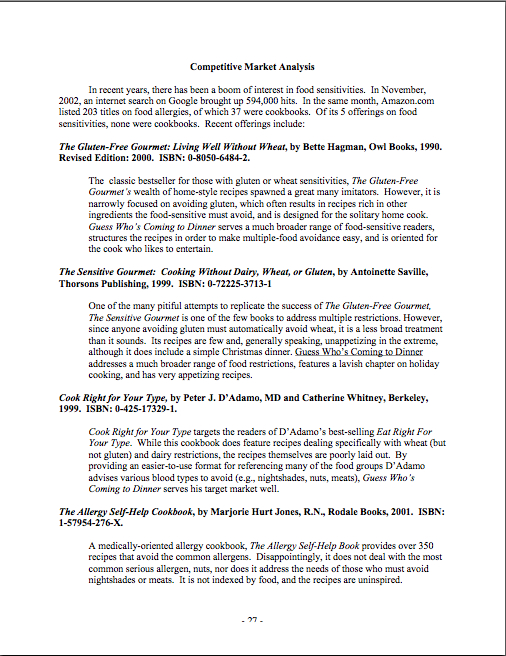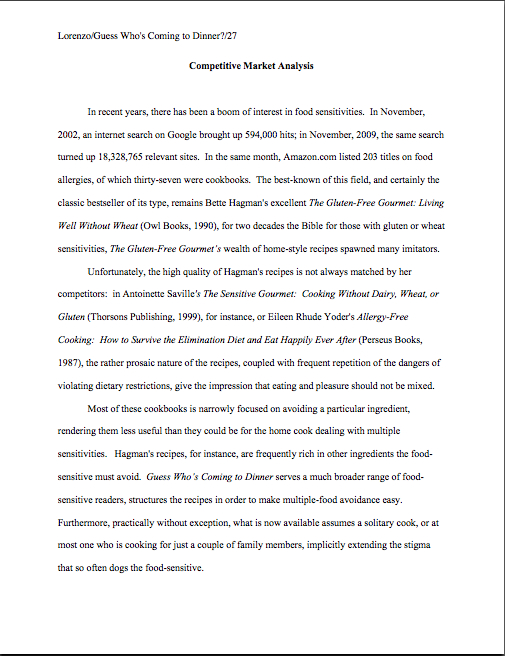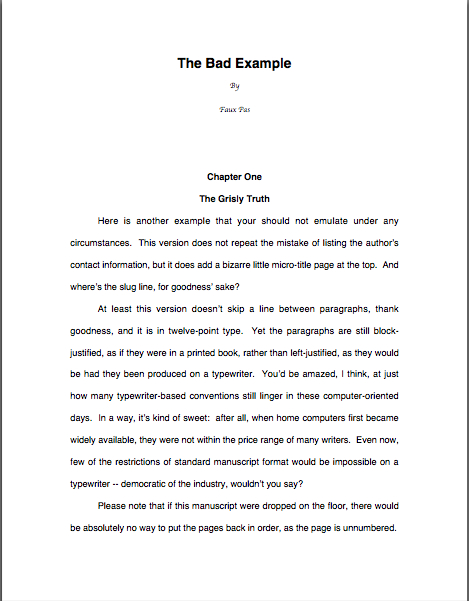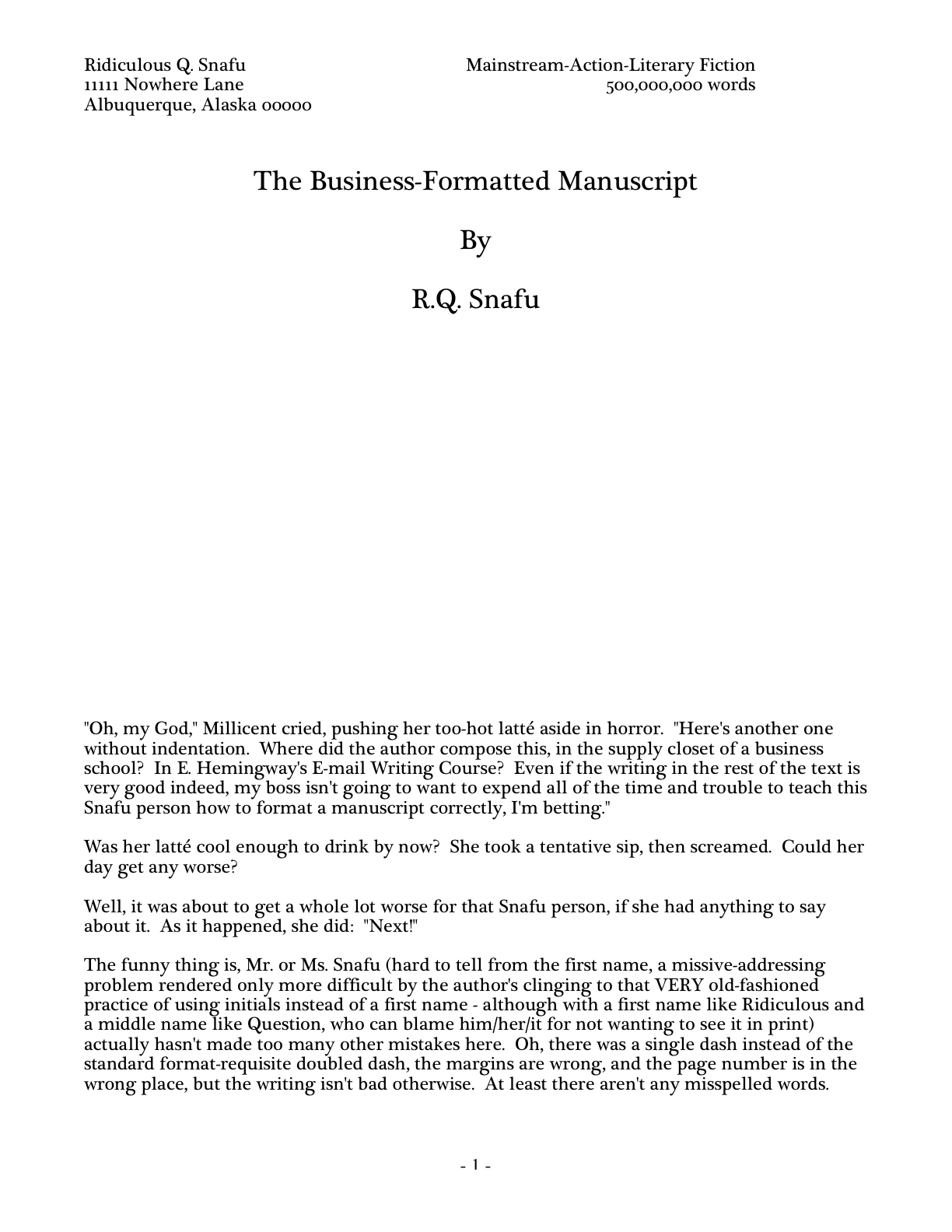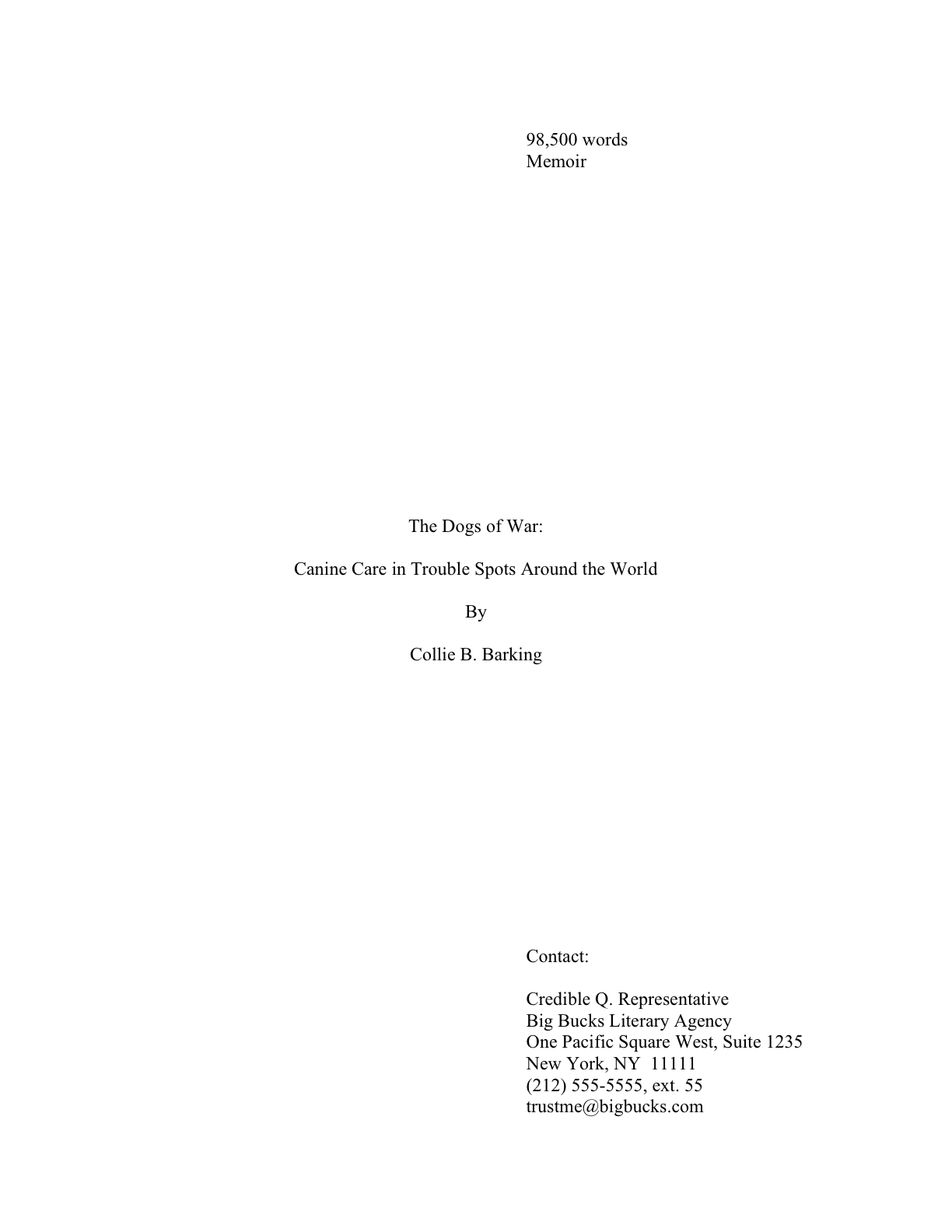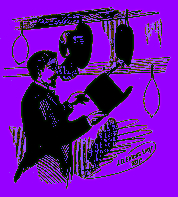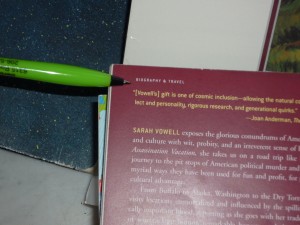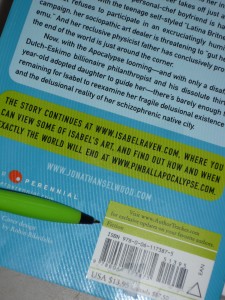
What do you think, campers? Was yesterday’s How to Find Agents to Query-palooza a better title for this series, or do you prefer Generating a Query List-palooza? I’m not thrilled with either, frankly, but I like FindingAgentstoQuerypalooza even less. I suppose I could always turn it into an acronym (FAQpalooza has a certain visual appeal, I must admit), yet in my experience, if the title doesn’t instantly tell the reader what the post is about, they tend to click onward.
All of which is to say: I’m open to suggestions. And don’t be surprised if every day of this series has a different moniker up front.
So much for the superficial; on to the substance. Last time, I extolled the virtues of figuring out one’s book category before embarking upon the arduous task of seeking out agents to query.
Why? Well, an array of reasons, the most pertinent to your list-generating success being (a) agents think of manuscripts as inherently belonging to marketing categories, thus (b) they tend to express their preferences for what they do and don’t want to represent in those terms. Since (c) it is a complete waste of your time to query an agent who does not represent books in your category — or no longer represents them — having narrowed down your book’s category to, if not a single choice, then at least the nearest two or three, will not only help you avoid rejection {because (d) no query is easier to reject than one for a kind of book the agency does not handle}, but will also make it significantly easier to figure out which agents are even possibilities for inclusion on your querying list.
Whew. Try saying that last sentence three times fast.
It will even help you if you are planning to pitch at a writers’ conference. As any of you who have found yourselves on a conference-throwing association’s mailing list are probably already aware, attending a conference — particularly one that features face-to-face pitching appointments — is one of the best ways for an aspiring writer to connect with an agent. Although not necessarily in the way that conference brochures often imply: contrary to both popular opinion amongst aspiring writers and the marketing materials aimed at them, it’s extremely rare that an agent will hear a conference pitch and fall so in love with a book’s concept that she shrieks at the pitcher, “I adore this book! I’m going to sign you this very minute!”
Why not? Think about it: why would she presume that a person who can describe a book well verbally must necessarily also be able to write well? She describes books well for a living, yet she has probably never written one. She is going to want to see the actual manuscript before she commits to anything.
So much for the myth of instant signing. What conference pitching can do for you — and don’t sneeze at this; it’s not an inconsiderable advantage — is allow you to skip the querying phase altogether. If the agent to whom you are assigned to pitch (or whose attention you manage to engage politely between conference sessions) thinks your book sounds marketable, he will ask you to send either a partial or a full manuscript.
In other words, the best-case scenario is that he will respond precisely the way his screener, Millicent, would respond to a written query.
He will only ask for pages under certain conditions, of course. And what are those conditions, you ask with bated breath?
In order to pique an agent’s interest, a pitch must demonstrate that the book in question
(1) is on a subject that the agent finds fascinating (a matter of individual taste, always),
(2) is something the agent might be able to sell with his current connections in the literary market conditions of today (which change constantly, AND
(3) falls into one of the book categories he (or someone at his agency) already represents.
These should sound at least vaguely familiar to those of you who have been following this autumn’s ‘Palooza series: they are precisely the same conditions a query must fulfill in order to prompt Millicent to request materials. Obviously, whether one is pitching or querying, though, one’s chances of fulfilling Condition #3 are considerably higher if (a) one has already taken the time to figure out one’s book category (perhaps with the assistance of the aptly-named HOW TO FIGURE OUT YOUR BOOK’S CATEGORY posts on the archive list at right) and (b) one has done sufficient research on the agents one is approaching to know whether they represent that category.
And why would investing that time in research save you chagrin in the long run, campers? Shout it with me now: because it’s a complete waste of time to query or pitch to an agent who doesn’t represent your book category.
I cannot sufficiently stress the importance of doing your homework before signing up — or signing a check — to pitch at a conference. The overwhelming majority of first-time pitchers assume, wrongly, that conference organizers will automatically assign them to the right agent. Or — sacre bleu! — that it doesn’t matter which agent hears their pitches. All agents are identical, right? If a book is really marketable, any agent currently inhabiting this side of the earth’s crust will immediately snap it up. If not, well, the writing must not be very good.
If reading those last four sentences made you feel slightly sick to your stomach, you’re not alone: they represent a very, very common writerly misconception about agent-landing. If, on the other hand, those sentences made you laugh heartily, congratulations: you’ve been doing your homework about how agencies actually operate.
In the U.S. literary market, there is no such thing as an agent who represents every kind of book, any more than there is a publishing house that publishes indiscriminately, regardless of book category. These people and institutions are specialists.
So if you are trolling the Internet for pitching opportunities, it might not actually be in your best interest to assume that the one geographically closest to you will provide the best value for your conference-going buck. Again, think about it: if a conference does not feature agents who represent your book category, what good could it possibly do for you to make a pitching appointment there?
Instead, stick to conferences that either specialize in your book category — many genres host their own regional or national gatherings — or whose scheduled attending agents do so. Most conference brochures and websites will include brief bios for invited agents; since those short blurbs are often rather vague, you might also want to look up the agents in one of the standard agents’ guides or online before you register.
That’s one way to meet agents — one of the most expensive, unfortunately. Typically, conferences that offer pitch sessions are costlier to attend than those that do not; some even charge an extra fee per pitching appointment. (Yet another reason to do one’s homework before registering, eh?) Even if you opt for a conference that does not offer formal appointments, however, you may still be able to make an informal hallway pitch or have a conversation with an agent who happens to be giving a lecture.
Which brings me back to a suggestion from last time: even if you did not get an opportunity to pitch to an agent at a conference, you may still want to send her a query. Perhaps one beginning: I enjoyed hearing you speak at the recent Conference X. I hope you will be interested in my novel… I also, if you will recall, suggested tracking down who represents your favorite authors.
I have a more words of advice about the latter method yet to dispense, but before we move on, I feel ethically obliged to revisit the former briefly, to address a questionable querying practice I have seen in my travels. It pains me to report that some wily aspiring writers out there who do not actually attend conferences, but send out queries implying that they have.
How do they pull that off? These unscrupulous souls habitually surf the web, finding out which agents are scheduled to speak at which conferences and when, wait a week or two, then send the attending agents I so enjoyed your talk at Conference X, and I hope you will be interested in my work… queries. These unscrupulous have even been known to write Conference X attendee in big red letters on the outside of their query packets or type it in the subject lines of their e-mails.
And why do these clever-but-underhand writers do this? Because they have been hanging around the industry long enough to know that
(a) by a couple of weeks after a large conference, the average agent might not remember be able to pick everyone who pitched to her out of a police line-up, much less remember who was or was not in the audience during her how-to-wow-me speech,
(b) even at a small conference, many writers are too shy to approach an agent directly, so chances are, the agent will not have met everyone there, and
(c) at a big agency, a reasonably well-established agent will have a Millicent going through her queries for her, anyway.
Therefore (these cads reason) the chances of being caught in the lie about attending are next to nil, and since the benefits of being able to claim conference attendance can be fairly significant — as I mentioned last time, conference-going queriers’ letters usually end up in the closer scrutiny pile — they have no scruples, apparently, about dressing themselves in borrowed clothes. Why not, these abandoned types reason: at worst, being caught means the query and/or eventual submission’s being rejected, that’s all.
Fie, fie.
Actually, there are a couple of ways in which such bold souls do tend to get caught, and since I am here to preach practicality, rather than morality, I feel honor-bound to point them out. First, agent rosters for conferences are NOTORIOUSLY malleable; many a Millicent loves to tell tales of the query letters they’ve received that extolled the pleasures of meeting an agent who was not even in the time zone of the mentioned conference on the date mentioned.
Second, since agents routinely talk at conferences about their specific book needs of the moment, it’s quite common for Millicents to find their inboxes inundated with queries for their bosses’ latest yen a week or two after a conference. Agents are equally likely to announce at conferences what no longer represent — which means, in practice, that what they say there is often substantially different than what’s in the blurb they gave the fine folks who put together the conference brochure several months ago. It’s not even all that unusual for a conference brochure to re-use a blurb from the last time that agent attended, even if his preferences have changed in the meantime.
You can see the pretend attendee’s mistake coming, I hope? If a querier says, I was so pleased to hear you say at Conference Y that you are looking for paranormal romance, and I hope you will be interested in mine, and Millicent knows that her boss marched into Conference Y and declared, “I’m so sick of paranormal romances that I wish never to see a query for one again,” that’s obviously an automatic rejection offense. True, since changing preferences are often not expressed in the latest edition of an agency guide, the unprincipled conference-claiming writer will probably only be making the same mistake as aspiring writers working from an outdated guidebook, but still, fie.
Brace yourself for #3, campers, because it represents some pretty hardened criminality. If you are easily shocked, you might want to avert your eyes.
Some dodgy writers are not satisfied with merely imposing upon Millicent with an untrue statement in a query letter. Sometimes, they will send the first 50 pages of their manuscripts to an agent who attended a conference, along with a disingenuous letter thanking the agent profusely for requesting the materials at a conference so jam-packed with writers that the agent might well have been the recipient of dozens of hallway pitches.
Fie, fie, FIE!!! I find this one particularly offensive — although truth compels me to say (off the record, of course) that I do know several successfully published authors who got their agents this way.
But that doesn’t make it right, my friends; it only makes it common. You’re better than that. I know you are.
Now that we’re all sadder but wiser about the ways in which this wicked, wicked world works, let’s talk about how to track down and solicit established writers’ agents without resorting to sordid trickery. Just where does a writer go to find out who represents what, in order to target her queries effectively?
Last time, I talked about the most common advice agents give to aspiring writers: find out who represents your favorite authors, usually through trolling acknowledgments pages, and querying their agents. (Actually, the most common advice agents give to writers is to go away and query someone else — the previous axiom is merely the most frequently-given advice about how to FIND an agent. But I digress.) This can be a dandy way to find a good agent with a proven track record in representing a particular kind of book.
Do be aware, however, that if the authors whose agents you approach are well-known, have published more than a couple of books, and/or are award winners, their agents may not be altogether keen on picking up the unpublished. This is especially likely to be the if the books you are checking happen to have come out more than a year or two ago — or if the authors in question were overnight successes tend to linger at the top of the NYT bestseller lists.
Check agency websites and standard agents’ guides before you invest a stamp on a query: the agent willing to fall in love with a previously-unpublished writer a decade ago may well not have done so again anytime within the last couple of years. Not all agencies are open to first-time authors. Another reason to double-check those acknowledgements: it’s entirely possible that the agent representing a major author now is not the same one who first took a wild chance on him as an unknown back in the 80s.
Why? Well-established authors often move up to more important agents as they gain prestige, so by the time that a Pulitzer Prize-winner like Alice Walker ends up at the Wendy Weil agency, she may have traded up two or three times. The exceptionally gifted memoirist Barbara Robinette Moss, for instance, traded up to Ms. Weil; I don’t know if that’s how essayist Sarah Vowell ended up there. But see my point?
Authors change agents all the time, and client-poaching, for lack of a nicer term for it, goes on more than most aspiring writers expect. And for good reason: as I believe I MAY have mentioned before in this very post, both market and individual tastes change, and not all agents enjoy an equal ability to sell a particular book.
Some have better connections for an author’s next book than others: some habitually lunch and cocktail party with editors at larger publishing houses, for instance; some went to college with more fine folks who ended up at imprints devoted to literary fiction than others. It may even be as simple as a particular agent’s having sat next to a particular editor at a writing conference’s rubber chicken dinner, but the fact is, different agents enjoy different levels of access to the people who would need to approve the acquisition of any given book.
So after an author has a major success, or even a modest one, with his original agent — that hard-working soul who was willing to take a chance on an unknown, bless her — it’s not all that unusual for him to start looking toward a better-established agency. Or for a more prominent agent to begin courting him.
Which sometimes leads to some rather amusing odd head jerkings in restaurants and bars adjacent to writers’ conferences: “What’s Author X doing having brunch with Agent R?” Agent B will hiss, pretending to drop his napkin as a cover for turning around to look. “I nursed X through three novels!”
The moral, should you care to know it: it’s not in your interest to assume that the agent whom the author thanks in the acknowledgments in his most recent book is necessarily the one who got him his first break. If the book in question is very successful, or is the follow-up to a success, that name could as easily be Agent R as the guy who dropped his napkin surreptitiously to stare at their clandestine meal.
Checking an established author’s FIRST book’s acknowledgements is often a better bet, especially if that author only broke into the big time within the last few years. Be aware, though, that a laudable willingness to take a chance on a hot new talent is not always how agents end up representing a particular author. Like John Irving, an author may have married his agent, Janet Turnbull Irving of the Turnbull Agency, a feat you could hardly hope to reproduce between now and Christmas.
Although let me know if you do, and I’ll send along a wedding present.
It’s also not unheard-of for an agent to make her reputation on a single well-known client, and to concentrate most of her efforts on that client, rather than on new ones. Often, these bestselling authors’ prestige was probably the key that opened the door to the top-flight agencies, rather than their beginning-of-the-career raw talent.
Generally speaking, you will be better off if you place the agents of writers on the bestseller lists lower on your priority roster, and concentrate on midlist or first-time authors. If you do decide to go hunting for the big game, bear in mind that that a Millicent Writers House, for instance, will inevitably open a LOT of queries that begin, As you handle Ken Follett…, Since you sold Nora Roberts’ last book…, and Since you so ably represent Neil Gaiman…
Such queries will not get any points for novelty, if you catch my drift.
Recall, too, that an agent who represents a bigwig author will often spend the bulk of his time catering to the bigwig’s business — and thus may well have little time to lavish on a new-but-brilliant client. (If you should ever find yourself within shouting distance of the delightful Don Maass of the Donald Maass Agency, ask him about how many days per year he devotes to a client like Anne Perry, as opposed to a client he’s just signed. Go ahead, he won’t be offended: he talks about it at conferences.)
In short, setting your heart on your favorite bestseller’s agent may not be the best use of your time and energy. Where the Since you so ably represent Author Q, I believe you will be interested in my work… gambit will serve you best is with lesser-known writers, particularly those who are just starting out.
Seriously, many agents nurturing a pet author or two, someone whose books currently sell only a few thousand copies, but the agency hopes be breaking into mainstream success any day now. Where recognition is scant, any praise is trebly welcome, so the clever writer who is the first (or tenth) to identify the up-and-coming writer as THE reason for picking the agent is conveying a subtle compliment to eyes hungry to see it. The agent (or her Millicent) often thinks, “My, here is a discerning person. Perhaps I should give her writing a chance.”
Good reason to go to first-time authors’ public readings, eh? The less famous the writer, the less well-attended the reading usually is. Maybe, if you are very nice (and one of the three people who showed up for the book signing), the brand-new author might even agree to let you begin your query letter, Your client, Brand-New Author, recommended that I contact you…
Again, do you think such a letter will get more or less attention than the average query?
A couple of words of warning about using this strategy, however. First, if you value your credibility (and you should), do not state, even as an indirect implication, that the author recommended you contact the agent unless it is true.
Oh, you may laugh, but aspiring writers do this all the time; it’s a well enough known dodge that agents routinely ask their clients, “Hey, what can you tell me about this writer?” If the response is, “Who?” using the recommendation might actually carry a negative value.
If you do indeed have a recommendation, great. If you do not, however, it’s just not wise to tempt fate.
But in response to what half of you just thought very loudly indeed, in terms of pure ethics, I think that a famous writer’s telling you at a conference, “Gee, you should talk to my agent,” constitutes a recommendation, and you are entitled to use it accordingly. A word to the wise, however: since it is not unheard-of for a touring writer not to recall the names and/or book titles of every soul with whom she had a conversation on a 9-state tour or at a 450-attendee conference — I tremble to tell you this, but it’s true — you might want to play it safe by sending off a brief, polite thank-you note to the recommender before you query her agent. (Most publishing houses will forward readers’ correspondence to their authors.)
Yes, it’s a bit time-consuming, but yet again, I would encourage you to think about it: wouldn’t you rather that famous author’s response to her agent’s inquiry about you were, “Oh, yes, that charming young writer; he just sent me a note,” than “Who are you talking about, Maisie?”
Also, it’s dangerous to use the names of writers whose work you do not like as calling card with their agents– and downright perilous to use the names of writers whose work you have not read. It’s only prudent to assume that, at some point, you will be having a conversation with the agent about the author whose work you praised.
The more obscure the author, in my experience, the more likely this conversation is to happen. If you hate the prose stylings of Alan Hollinghurst (whose work I love, personally; the last I checked, he was represented by Fletcher & Co.), or if you have never read any Dorothy Allison (Frances Goldin Agency), it’s probably not the best idea to present yourself as an enthusiast to their respective agents, or indeed to anyone who knows their work very well.
Your mother was right, you know: honesty is the best policy. Go give her a call, and keep up the good work!

